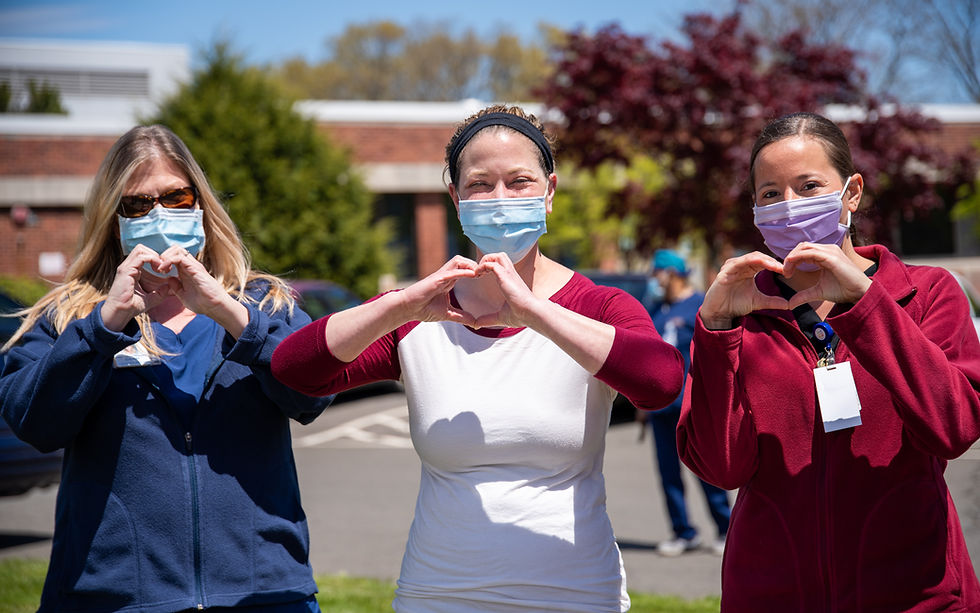Coaching in a Pandemic
- Sep 30, 2020
- 3 min read

As I was doing some pandemic research for this post, two curious book titles resurfaced on multiple search pages: The Art of Saying No and The Joy of Imperfection.
As I thought through the possibilities, I landed on uncertainty as a connection. How has the criteria changed for our decision-making today versus yesterday? What are the values we emphasize in our lives today versus what we valued most yesterday?
In “normal” times we engage in multiple routines that reinforce our sense of certainty – go to work 5 days a week, book club meeting once a month, soccer practice 3 times a week…We also engage in planning that reinforces our sense of certainty in the future – planning a wedding 6 months out, summer vacation, new car next year.
And yet, certainty does not really exist. We are able to observe that truth in all of its chaotic mess with the current extreme example of the pandemic.
On a daily basis, we often focus on what we believe to be certain, avoiding the existential reality that nothing in life is certain. When faced with an example, we don’t often look at the aberrations from a certainty perspective. I am certain I am going to work on Monday, and I have a car accident on the way, which ultimately prevents me from getting there. I focus on the accident, maybe what I missed at work, but not that the accident is an example of life’s uncertainty.
So how do we coach effectively through such visible uncertainty, and are there hidden treasures in this pandemic that we can find and use?
Having curiosity as a primary value and having positivity at the center of my life for so many years automatically leads me to two questions – What are the potential benefits of this pandemic? What can I learn from this? The fears of the worst don’t go away, but they are muted as they are not the object of my focus.
A client who owns an interior design studio and retail home furnishings store has struggled to hang-on to what she loves doing, overshadowed by large retail outlets that have attracted many of her clients. In view of the pandemic, we brainstormed possible opportunities for her business. The result was a thought that people who normally shop in malls, might come back to local small businesses with fewer customers, and this may be a chance for her to regain some of her customer base. She sent out a flyer and over the next week saw several new and returning customers.
I have watched with some amazement the focus on hoarding toilet paper that has emerged since the pandemic has hit the U.S. Friends in Canada and Australia are observing the same thing. I found it curious – why toilet paper? What can I learn from this? I first learned that 90% of toilet paper in the U.S. is manufactured in the U.S. I also learned that, for many, having enough toilet paper provides a sense of control. Then I saw the groupthink bias in full swing – if everyone is hoarding toilet paper, so should I.
Perhaps the biggest learning for me has been what I have observed in myself in the midst of this. Many of my clients are health care leaders – physicians, administration leaders, health system leaders. I have wondered about the risk of seeing these clients in their settings during this time. As I observed my willingness to continue to meet in person, what came up was “This isn’t going to happen to me.” It is part mantra, part based on expert predictions of who is at high risk, and part totally irrational but none-the-less convincing belief that facing the fear of in-person meetings will somehow immunize me from the potential reality.
How did I translate what I learned about myself to my coaching practice?
– Look beyond the presenting concerns of my clients (i.e. toilet paper) and encourage them to look more closely at their core beliefs and values and how those can serve them during this unprecedented time. – Invite clients to brainstorm ideas about the potential upside of this time. I have a client who works for a multibillion dollar retail organization that has never allowed headquarters employees to telecommute. He is using the pandemic to hopefully persuade the CEO that telecommuting makes sense now… and in the future. – Invite clients to look more deeply into themselves , their beliefs, their values and articulate what they are learning about themselves that can serve them. – Recognize the importance of having a sense of some certainty and its place in motivation
What can you learn about yourself that will help your practice during such uncertain times?
Suggested Resources:
THE PLACES THAT SCARE YOU, by Pema Chodron
EMBRACING UNCERTAINTY, by Susan Jeffers
UNCERTAINTY: TURNING FEAR AND DOUBT INTO FUEL FOR BRILLIANCE, by Jonathan Fields




Comments